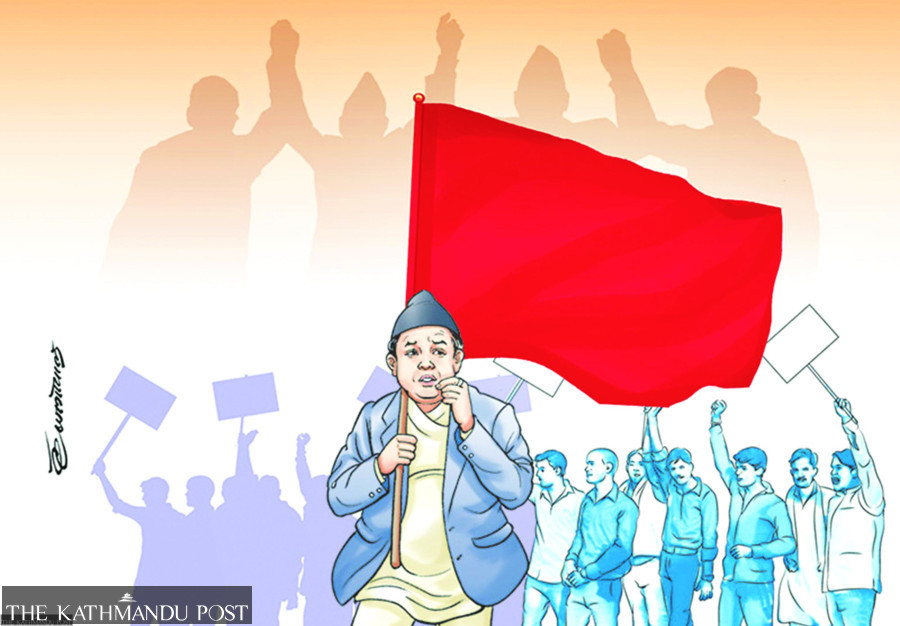Editorial
Divided we fall
The breakdown of alternate political forces damages the health of Nepali democracy.
And so the major parties in the ruling coalition have again connived to engineer a vertical split in one of their junior partners. Making and breaking of political parties, coalitions and governments has become a routine affair. So much so that leaders who are out of power seem impatient to wait even for a few months to get back into the government. Just two months after Prime Minister Pushpa Kamal Dahal changed his coalition partners, breaking ties with the Nepali Congress and forging a new alliance with the CPN-UML, yet another episode of party split has materialised, allegedly to thwart an attempt to topple this new coalition. The Janata Samajbadi Party Nepal led by Upendra Yadav, a deputy prime minister in the Dahal Cabinet, has split and a new party led by Ashok Rai has been registered in the Election Commission. Leaders from the faction who registered the new party blame Yadav of allegedly trying to join hands with the main opposition Congress and some other fringe parties to form an alternative alliance and become prime minister. Congress President Sher Bahadur Deuba, Yadav and Madhav Kumar Nepal of CPN (Unified Socialist) were reportedly plotting. Sensing the same, Prime Minister Dahal and UML chair KP Sharma Oli foiled their plan by splitting Yadav’s party, with a majority of the split party’s lawmakers staying in the present ruling coalition.
As they say, old habits die hard. Our ‘old leaders’ haven’t changed their errant ways. Factional feuds for power is a big reason for growing public apathy towards political parties. But the parties’ honchos show no sign of change. While it has become a common problem of almost all political parties, the breakup-merger dynamics is most apparent among Madhes-based organisations that emerged mainly after the 2007 Madhes Movement. People in Madhes backed these forces that were championing regional and identity issues. They hoped political parties such as the then Madhesi Janadhikar Forum Nepal and leaders like Yadav would help address the age-old concerns of historically marginalised and oppressed communities.
Disputes and divisions in political parties are natural in a democratic setup, but only up to an extent. If there are seemingly irreconcilable ideological or policy-related differences, it makes sense for the differing sides to part ways. Yet the political parties in Nepal seldom split for ideological reasons; mostly, it happens because of clash of personalities or differences over getting into and staying in the government. For instance, since Yadav formed the Madhesi Janadhikar Forum Nepal in 2007, his party has split nearly a dozen times and subsequently merged with different outfits. Not once was the division a result of clash of ideologies or party orientation. Such splits were rather all products of power games.
Such opportunistic behaviour of our political parties is damaging, on multiple fronts. It weakens the spirit of vital political movements like the Madhesh movement, on which a large section of the society pinned great hope. People fought for the cause and supported the movement’s leaders risking their lives. They see the lust for power among their chosen ones as a betrayal of a great cause. This in turn makes them veer towards extremist forces. Also, the sizable presence of alternate political forces with distinct constituencies, identity and agenda kept the major parties from imposing majoritarian views. The downfall of such forces is a blow to the idea of a vibrant pluralistic society.




 9.56°C Kathmandu
9.56°C Kathmandu














